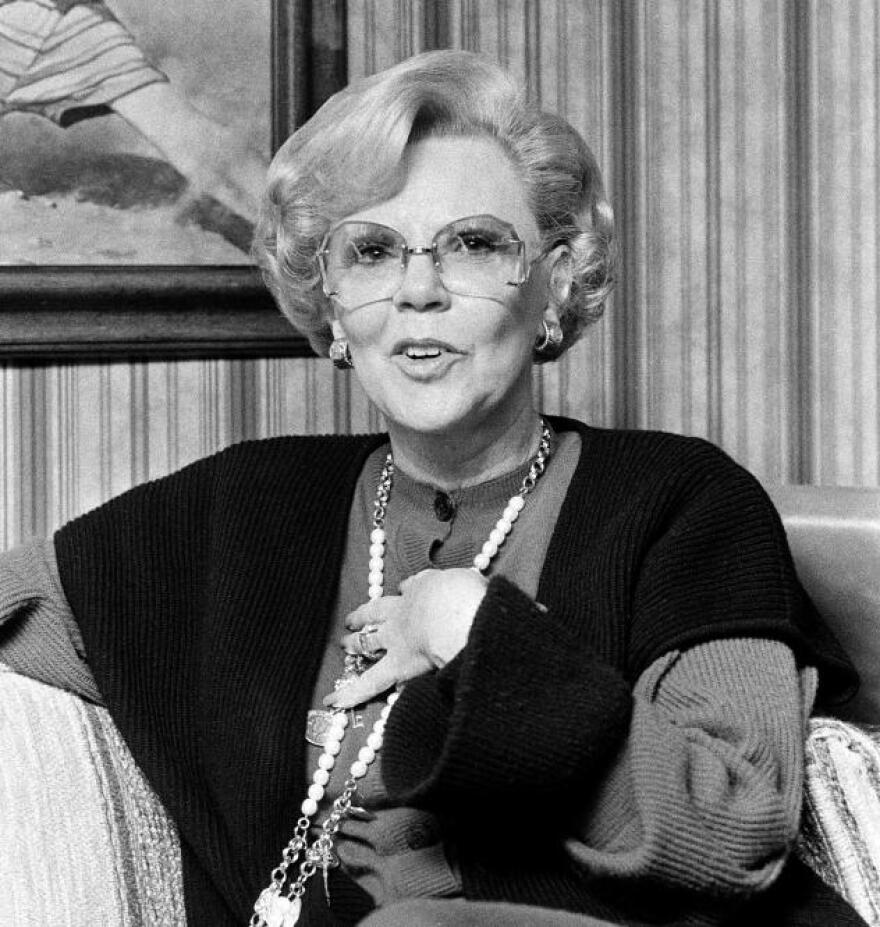The name Joan Kroc might not mean much to you, but she's played a big role in some of the things that probably do.
She and her husband Ray, for instance, took a little burger joint called McDonald's and turned into a global empire.
And, a little bit closer to home, Joan bequeathed $225 million to NPR when she died in 2003 – the largest gift in NPR history, and one of the biggest philanthropic donations in American history.
But a new book about Joan also sheds some light on her ties to Las Vegas, some of which may be a bit unexpected.
INTERVIEW HIGHLIGHTS:
Who was Joan Kroc?
She was a very complicated woman with a very interesting back story. She grew up poor in St. Paul, Minn. And she connected with Ray in 1957 when he was out shopping around franchises for the brothers McDonald, who started McDonald’s in the deserts of California. He came into the restaurant where she was playing organ… and saw her and he fell in love with her. Years later, they finally married.
She was a complex woman and that’s what made me so intrigued by her. She got involved with McDonald’s but also later in life became so philanthropic in such and interesting and inventive way.
How did Las Vegas play a part in the origination story of the Krocs?
When they first decided to run off and get married, they needed to get divorced from their current spouses. Of course, in those days, doing that was not so simple. In 1961, they first came to Vegas to try to divorce their existing spouses. And Joan kind of pulled the cord on that and went back to her first husband. Years later, in 1969, she came back with Ray and got what they called quickie divorces.
Vegas for them stoked their passion for performance. They both loved to gamble, I’m told. I wasn’t able to find out as much as I had wanted to because people in Vegas are so fantastically private about their clientele. I’ve heard a number of stories of tables being cleared out because Mrs. Kroc showed up.
After the divorce in 1969, she would come back to Las Vegas and other places to gamble and she gambled big apparently. She had a lot of money so she could.
Was there any concern that her gambling habit would eat away at their fortune?
No. She was close friends with Mayor Maureen O’Connor of San Diego… and Mayor O’Connor gambled much more money than she actually had and lost quite a lot of money. She was very close to Joan and use to go gamble with Joan.
I think either Joan was such a good gambler or she never went over the edge to the point where it was a fear that the money would disappear. Of course, she had hundreds and hundreds of millions of dollars.
Money from Ray Kroc’s Kroc Foundation was moved into the Joan B. Kroc Foundation before he died, but she used the money in different ways than he might have:
Joan was very interested in different things than Ray. She was very liberal minded. She wasn’t a registered Democrat. She always said she was a registered independent, but she gave the first $1 million individual donation to the Democratic Party. She funded famine relief. At the end of her life, she famously funded NPR. She was very involved in so many different things.
If something just peaked her fancy, because she saw it on TV or heard about it on the radio, it wouldn’t be unusual for her to dash in and either save the day or write a check. That was certainly true in the early instance of the AIDS epidemic. She heard stories of people being wronged because they had AIDS... and she would come in and help.
Where did that push to help people come from?
Some people come out of the womb wired to be compassionate and other people don’t. They take the fortune and they either feel that they deserve it or they feel that they need to share it. And she was definitely in that category.
I think in some ways she felt burdened by the fortune and she wanted to use it to good effect. It wasn’t that she was trying to build a monument to herself in some way, because she really didn’t want that done. But at her core, she could not see somebody suffer and not want to swoop in and somehow help.
Let’s talk about how she ended up giving so much money to NPR:
When you sit down and look at all your assets, which she did as she was diagnosed with a brain tumor, figuring out where to disperse your assets at the end of your life. She had a big bank account that had about $235 million in it.
She wanted to split it evenly between public radio and public TV. Like many people, she didn’t really know the difference. A lot of people don’t know the difference, they just know it is public media and they love it and they support.
She was very good friends with Mr. Rodgers, Fred Rodgers, and had supported some documentaries as well as his work too and they made a call, I’m told, to PBS to tell them they wanted to talk and their call, I’m told, was not returned.
So all of the money went to NPR.
Lisa Napoli, author, "Ray & Joan"










